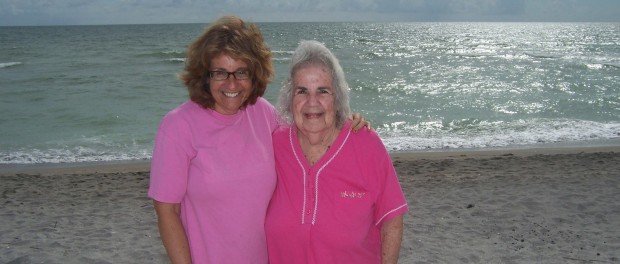Florida: Judge calls for scrutiny of guardianship case
Sarasota Herald-Tribune
By Barbara Peters Smith
Published: Friday, August 7, 2015 at 2:43 p.m.
SARASOTA – A circuit judge appointed an independent court monitor on Friday to investigate the case of a Siesta Key resident and former art gallery owner who has spent the last two and a half years under the control of a professional guardianship, after attorneys for her daughter argued that the hasty procedure making her a ward of the court was a violation of due process.
Facts
ABOUT THE SERIES
When “The Kindness of Strangers: Inside Elder Guardianship in Florida” was published in December, Herald-Tribune readers learned how easily a citizen’s rights can be taken away and given to somebody else, for life. Since its publication, several reforms to the state guardianship statute have become law, and in June the court administrator and chief judge for the 12th Judicial Circuit asked the Sarasota County Commission to fund a new court monitor position to investigate complaints about the system.To read the series online, go to HeraldTribune.com/guardianship.
In January 2013, the 12th Judicial Circuit Court named the nonprofit agency Lutheran Services Florida as the guardian of Marise London, 86, at the request of the Department of Children and Families’ Adult Protective Services division. The agency was paid from London’s assets to make decisions about her finances and health, at the rate of $85 an hour — while her daughter, Julie Ferguson, maintained she could provide better care for free, and had a right to do so under a Power of Attorney document her mother signed before suffering from cognitive impairment.
This week’s hearing hinged on an esoteric point of law. But after an hour of debate, Chief Judge Charles E. Williams caught Ferguson’s attorneys off-guard by asking them what outcome they really wanted for London.
“Let’s not lose sight of the big picture,” Williams said. “I don’t want people to think the court gets caught up in the minutiae of the law and doesn’t care about the best interests of the ward.” If London does not need a guardian, or if her daughter would be a more suitable guardian than her current one, Williams added, “we can address those issues.”
In December, the Herald-Tribune published a series of articles — “The Kindness of Strangers: Inside Elder Guardianship in Florida” — examining the experiences of people who believe they were denied due process when elders were found to be lacking capacity to make important decisions, stripped of their civil rights and placed under a court-appointed guardianship. The series highlighted the potential for conflicts of interest among professionals who work closely together within the system. Because wards’ cases are confidential, there is often little opportunity for oversight.
Ferguson, whose story was part of the series, said she first called the state for help more than four years ago, on the advice of an attorney. She had become alarmed that her mother’s progressive dementia was leading her to give away assets she could not afford to lose. But when authorities finally asked the court for an emergency temporary guardianship for London, the petition listed Ferguson’s address as “unknown” — “despite knowing her address,” Ferguson’s attorneys claimed in court filings. This led to insufficient notice about her mother’s initial hearing, they argued, and left her no time to obtain an attorney.
“The record would reflect that she was never served with a copy of that petition,” William B. Eppley, the Brooksville attorney Ferguson hired to reopen her mother’s case, noted at a hearing in Williams’ courtroom Thursday. “She tried to get a lawyer, and couldn’t get a lawyer.”
A state advocate
Ferguson has become an advocate for guardianship reform, testifying on behalf of bills in Tallahassee this year and using social media to connect with others in the cause.
Dozens of her supporters attended the hearing Thursday, crowding into one side of the courtroom like guests at a wedding.
The attorney for Lutheran Services Florida, Edwin M. Boyer, asked Williams to dismiss Ferguson’s motion to vacate the guardianship. Because of complex legal rules, Boyer said, the only way a judge can nullify a guardianship based on a denial of due process is if the case had been declared adversarial from the outset.
“The guardianship rules and statute are set up to be nonadversarial,” Boyer argued. “The enduring arguments as to whether or not due process was violated, whether or not there was fraud, are irrelevant.”
On Friday, Williams agreed with Boyer’s point, and granted his request to strike the motion. Ferguson’s case could have ended there, but the judge chose to take the extra step of appointing Osprey attorney Jeffrey Morris to investigate further. As the circuit’s new chief judge, Williams asked the Sarasota County Commission in June to fund an extra court monitor position for the sole purpose of handling complaints about guardianships.
“The Court needs to have a better understanding of the dynamics of this case,” Williams said in his order, “and be certain of the motives of the various parties to make certain that the needs of the ward are being met and the current situation is in the best interests of the ward.”
Absorbing this new development on Friday, Ferguson said she would consult with her attorneys — including the director of litigation for Disability Rights Florida, who recently joined her team — and take a wait-and-see approach. But her mother’s guardianship experience has made her wary.
“Having all these strangers involved in making these decisions has been so terrible,” Ferguson said. “How would anyone feel about that kind of power being wielded by one person over a loved one?”





